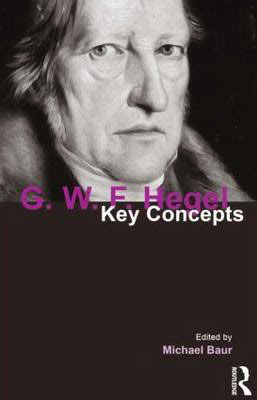German philosopher G.W.F. Hegel (1770-1831) is one of the discipline’s most influential thinkers. Unfortunately, his comprehensive, systematic philosophy is so complex that some contemporary philosophers never fully grasp it.
Thankfully, Fordham professor Michael Baur, Ph.D. has helped to make Hegel’s worldview more accessible. G.W.F. Hegel: Key Concepts (Routledge, 2014), which Baur edited, provides an introduction to both Hegel’s thought and the later philosophical movements that Hegel inspired.
 “Hegel was a very comprehensive and systematic thinker, [so]in order to grasp the full meaning of any particular part within Hegel’s system, it is necessary to appreciate the context of the whole,” writes Baur, an associate professor of philosophy and adjunct professor at Fordham Law.
“Hegel was a very comprehensive and systematic thinker, [so]in order to grasp the full meaning of any particular part within Hegel’s system, it is necessary to appreciate the context of the whole,” writes Baur, an associate professor of philosophy and adjunct professor at Fordham Law.
“[In addition,] Hegel developed his innovative and systematic philosophy in continuous dialogue with his own contemporaries. Thus, in order to understand Hegel, it is necessary also to understand the historical context within which, and in response to which, Hegel was developing his own philosophical views.”
The book is divided into two parts. First, it covers the main philosophical themes Hegel addresses, namely, epistemology, metaphysics, philosophy of mind, ethical theory, political philosophy, philosophy of nature, philosophy of art, philosophy of religion, and philosophy of history.
The second section deals with post-Hegelian movements in philosophy, including Marxism, existentialism, pragmatism, analytic philosophy, hermeneutics, and French post-structuralism.
G.W.F. Hegel his the shelves this week. Click here to read the publisher’s synopsis of the book.

